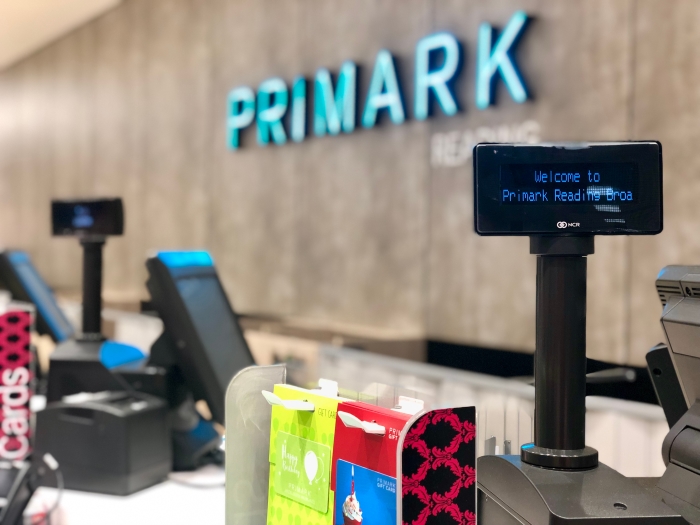Shoplifters are using TikTok to spread a playbook of tactics on how to steal goods such as clothes, jewellery and make-up from retailers.
Users on the video-sharing platform have rated high-street stores on the basis of how easy it is to get away with shoplifting and offered tips on avoiding detection.
They swap the words “stealing” and “shoplifting” with “borrowing” to evade detection by TikTok’s filters.
A search for “borrowing tips and tricks” on the app generates a host of videos, many from accounts clearly created to advertise shoplifting techniques. The self-declared “borrowers” urge shoplifters not to target small businesses but instead steal from large companies who are less likely to intervene because they can cover the losses.
Shoplifters rate shops on how easy they are to steal from
Other videos show users rating shops on how easy they are to steal goods from, with factors to look out for such as cameras, security guards, blind spots and the number of changing rooms.
Chris Philp, the crime and policing minister, said last night that he was “horrified” that TikTok was allowing the advice on its platforms and said he would be requesting an urgent meeting with the company’s bosses. “They should not be facilitating the spread of criminal practice,” he said.

One TikTok account, named “x_borrowing.tings_x”, says in a video that Primark is the easiest store to steal from, giving it a 10/10 rating because it “[doesn’t] check how many items you take to the changing room” and its cameras have “lots of blind spots”. Asda was rated second highest, noting that the make-up aisle was a good target and that its toys are “so easy to get”.
Wilko was graded 9/10 because its cameras have blind spots and its security stickers are “easily peeled off”.
The user warns shoplifters away from Superdrug, which scored 5/10, because “security is getting better and not as many blind spots” but adds: “Easy for lip glosses though.” The discount store Savers gets 2/10 because there are “lots of cameras and workers walk around a lot, will follow you if they think you’re suspicious”.

Another account, named “borrowertipz”, has posted a series of videos on how to steal jewellery. In one post, the user advises: “Bending down to tie your shoes is a good way to tie rings or bracelets to them.” The accompanying video offers viewers a “how to” guide. Another video says: “Tying shirt in the front is a good way to hide small things.”
Fellow shoplifters leave feedback and further tips on the videos. One user commented: “Don’t borrow from small businesses, or places with lots of cameras and security. Go for low security businesses.”
Another user with the slogan “we borrow sh1t”, advises shoplifters to “wear baggy clothes but also try to dress to the weather”. “Wear long sleeve shirts/sweater/hoodies so you can slip things in to your sleeve,” it adds. “If you’re with other people stay with them and cover them while someone borrows.”
Accounts also give tips on what to do if you are caught, with one suggesting that viewers explain that they were being followed and they deliberately stole something to attract security. Other tips shared are to “act like you’re looking for someone on the phone and pretend to try to find them outside if the alarms go off, say you were just looking for someone”.
Matt Vickers, deputy chairman of the Conservative Party and a former employee at Woolworths and Home Bargains, said: “It is completely unacceptable for online platforms like TikTok to allow content that is enabling and encouraging crime in this way. Many of the ‘creators’ behind these TikTok’s are misleading their audiences into believing that stealing from a big company has no repercussions. The loss of stock leads to a price hike on the shelves, leaving the everyday customer paying for the losses.”
A TikTok spokesman said: “We have zero tolerance for content facilitating or encouraging criminal activities, including theft, as set out in our community guidelines and will remove this content if found.”
Dummies to combat thieves

The Co-op supermarket has introduced a range of dummy products and empty packaging to deter “bulk-theft” from organised crime gangs (Matt Dathan writes). The retailer recorded a 35 per cent increase in shoplifting in the first six months of this year, which it blamed on the proliferation of criminals who steal goods en masse by sweeping items into rucksacks, suitcases or even wheelie bins.
The Co-op said that empty packaging or dummies would be used to advertise higher-value products, such as coffee, chocolate and laundry gel, in specific stores that are frequently targeted by shoplifters. Shoppers who want to buy these products will have to take the dummy or empty cases to the till, where they will be exchanged for the actual product.
(Source: The Times)










